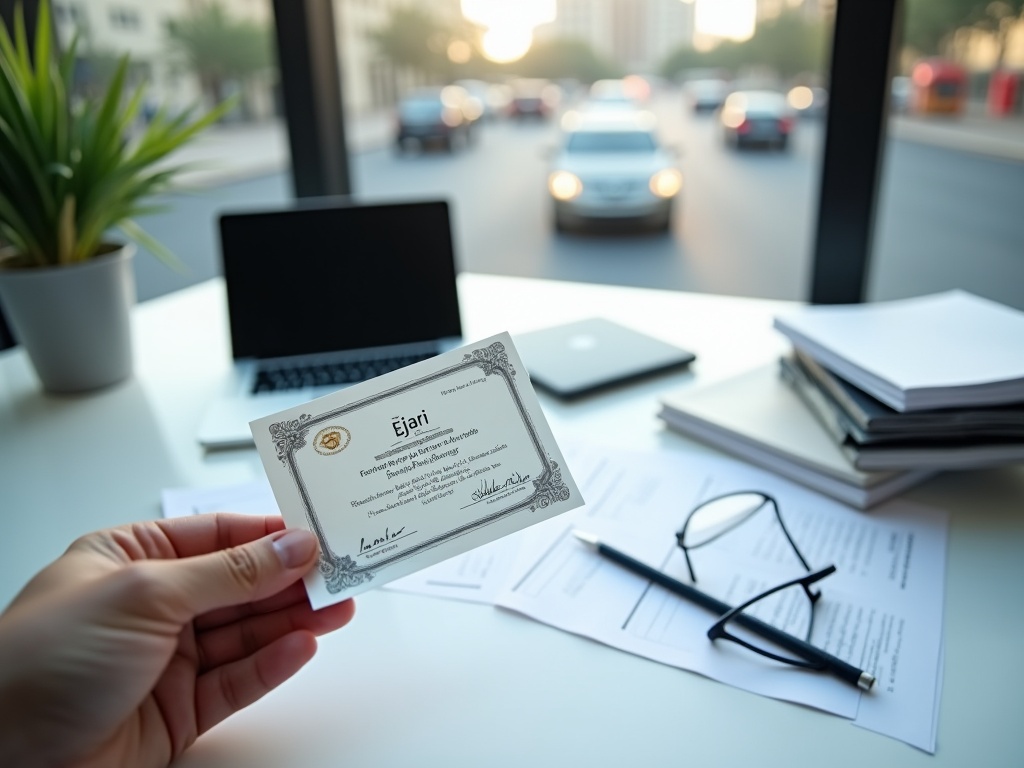Ejari or Tenancy Contract for Dubai License Renewal/Business Setup
In Dubai, securing a valid Ejari or tenancy contract is essential for various business setups and license renewals. This document acts as a proof of rental relationship between landlords and tenants, ensuring legal compliance and stability within the real estate market. For entrepreneurs, understanding the significance of Ejari is crucial, as it is a fundamental requirement when applying for a business license or renewing an existing one. This article delves into the complexities of the Ejari system, its importance for business licenses, and steps in obtaining one, ensuring your business can operate smoothly in Dubai.
Understanding Ejari and Its Importance

Ejari is an Arabic term that translates to ‘my rent’ and refers to the online registration system introduced by the Real Estate Regulatory Agency (RERA) in Dubai. The system aims to regulate the rental market, ensuring that landlords and tenants adhere to established laws and maintain fair practices. By registering a tenancy contract on the Ejari platform, it becomes a legally binding document recognized by government authorities. This legitimization not only protects renters but also provides landlords with a documented record of their agreements.
In Dubai, Ejari registration is not just a formality; it serves multiple purposes:
- Legal Protection: It safeguards both parties in case of disputes.
- Government Compliance: Government authorities require Ejari for various legal purposes.
- Utility Connections: Most utilities, such as electricity and water, require an Ejari certificate for activation.
- Visa Processing: It is often required for residency visas.
- Enhancing Credibility: Having an Ejari enhances your credibility as a business owner.
Steps to Obtain an Ejari Certificate

Obtaining an Ejari certificate is a straightforward process, yet it involves several steps to ensure compliance. Here’s a simple guide to help you:
- Gather Required Documents: You will need the original tenancy contract, your Emirates ID, and possibly your landlord’s identification documents.
- Visit an Ejari Registration Office: You can register in person at authorized typing centers or online through the Ejari website.
- Submit Documentation: Present all required documents to the designated authority for verification.
- Pay the Registration Fee: Fees can range from AED 150 to AED 250 based on the location and type of property.
- Receive Your Certificate: Once approved, you will receive your Ejari certificate, which can be utilized for various legal and business purposes.
The connection between your Ejari registration and business licensing in Dubai cannot be overstated. Every business establishment must prove its operational legitimacy, and the Ejari certificate plays a pivotal role in this process. Here are key points highlighting its impact:
- License Application: When applying for a new business license, you must submit an Ejari certificate as part of your documentation.
- Renewal Requirement: For license renewal, a valid Ejari serves as one of the key components to demonstrate continuous compliance.
- Commercial Spaces: For businesses operating in commercial spaces, an Ejari certificate is non-negotiable.
- Audits: Government entities often conduct audits; having all necessary documentation, including Ejari, simplifies this process.
- Reputation: A legitimate rental agreement enhances your reputation with the Department of Economic Development (DED) and other related authorities.
Consequences of Not Having an Ejari
Operating a business without a registered Ejari can lead to severe consequences. The lack of this critical document not only puts your business at risk but can also have legal repercussions. Key consequences include:
- Fines: You may incur penalties for failing to comply with local regulations.
- Licensing Issues: Your business license may be denied or revoked.
- Legal Proceedings: Potential disputes without a documented tenancy agreement can lead to legal battles.
- Utility Services Denial: Without an Ejari, you might face challenges in securing utility services.
- Negative Business Reputation: Operating without proper legal agreements can damage your business’s reputation in Dubai’s competitive market.
Conclusion
In summary, securing an Ejari or tenancy contract is a critical step for anyone looking to establish or renew a business license in Dubai. This legally binding document serves multiple purposes, including protecting the rights of both landlords and tenants, facilitating utility connections, and enhancing the credibility of the business operation. Ensuring compliance with the Ejari system not only promotes transparency in real estate but also plays a vital role in the successful establishment and continuity of businesses in Dubai. Therefore, entrepreneurs must prioritize obtaining this essential document to thrive in the dynamic business ecosystem of the UAE.
Frequently Asked Questions
1. Is it mandatory to have an Ejari to register a business in Dubai?
Yes, having a valid Ejari certificate is mandatory for both new business registrations and license renewals in Dubai.
2. How long does it take to get an Ejari certificate?
Once all documents are submitted and fees are paid, the Ejari registration process usually takes around one to three working days.
3. What documents are required to apply for an Ejari certificate?
You will need the original tenancy contract, your Emirates ID, and identification documents from your landlord.
4. Can I register an Ejari online?
Yes, you can register your Ejari certificate online through the official Ejari website or by visiting an authorized typing center.
5. What should I do if my landlord refuses to register Ejari?
If your landlord refuses to register your contract on Ejari, you may need to discuss this issue with them, or if needed, seek legal advice to understand your rights as a tenant.







